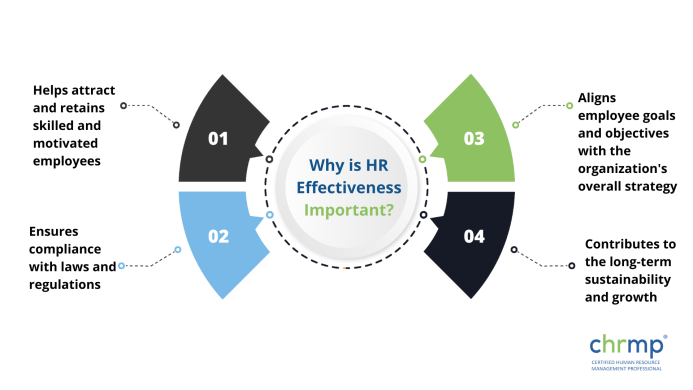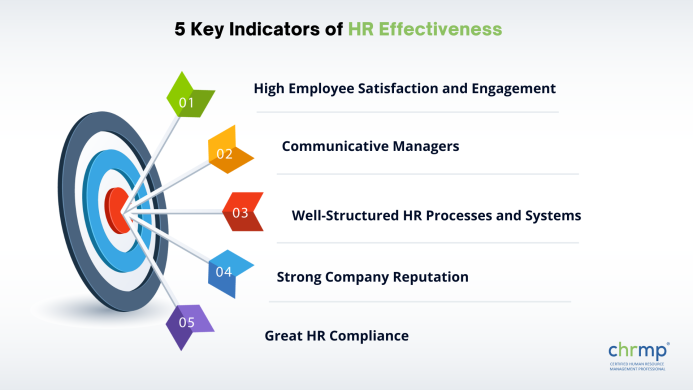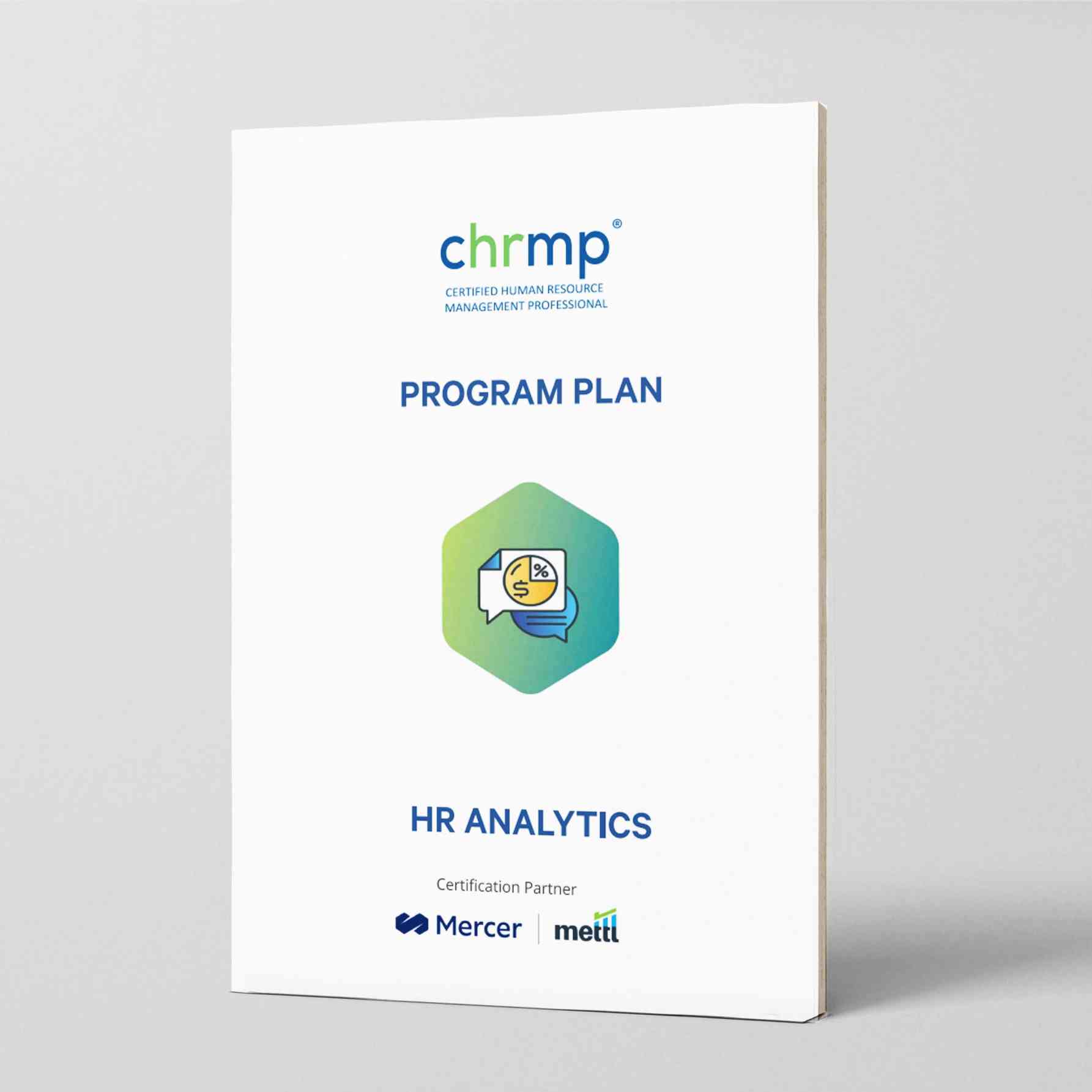

Enhancement of human resource management skills can take one’s organisation on a more productive path and new competitive heights. People are essential, whether they are the workforce or management or customers.
The success of any organisation depends on its people. That’s where effective HR comes in. Effective HR management is critical to building a vigorous, engaged, productive, and high-performing team that can drive your organisation to new competitive heights of success.
Attracting top talent and fostering a positive workplace culture, providing opportunities for professional development and career growth, and monitoring and managing performance, HR plays a vital role in creating a thriving organisation.
That’s why we’re excited to share our insights, tips, and best practices with you. We’ll cover a range of topics on HR effectiveness.
We’ve got you covered if you want to improve your recruitment and retention efforts, enhance your performance management practices, or create a more inclusive workplace.
Let’s dive in and discover the keys to unlocking your organisation’s full potential!
HR effectiveness refers to the ability of an organisation’s human resources function to achieve its goals and objectives in a way that maximises the contribution of its employees and employers to the overall success of the enterprise.
A practical HR function encompasses attracting, developing, honing and retaining talented employees who can contribute to the organisation’s success. It includes various activities, from recruitment, selection, employee and training and development, performance monitoring and management, retention, compensation and benefits, to compliance with laws and regulations.
HR effectiveness is meeting the company’s needs and ensuring employees are engaged, motivated, satisfied and fulfilled. It involves creating a positive workplace culture where employees feel valued, supported, and empowered to achieve their full potential and the organisation’s.
HR effectiveness is critical to any organisation. It plays a vital role in attracting and retaining top talent, improving employee engagement, productivity, and enhancing organisational performance. Any organisation’s reputation is at stake if the workforce is demotivated and the turnover rate is high.
Effective HR management attracts and retains skilled and motivated employees by offering competitive compensation and benefits, professional growth and development opportunities, and a positive workplace culture. By fostering employee engagement, HR effectiveness can help to increase productivity, reduce turnover and absenteeism, and improve workforce morale by inculcating a sense of belongingness in the employees, which enhances the overall employee experience.

A practical HR function aligns employee goals and objectives with the organisation’s overall strategy, providing employees with a clear direction and purpose. By doing so, HR helps to enhance organisational performance, driving innovation, productivity, and growth and gaining a competitive advantage in the marketplace, as well as employee engagement and performance.
Furthermore, HR effectiveness ensures compliance with laws and regulations, reducing the risk of legal disputes and penalties. It also supports the development of a diverse and inclusive workplace culture, which can foster innovation and creativity, increase employee satisfaction, and improve the organisation’s reputation in the competitive market.
In conclusion, HR effectiveness is essential for the success of any organisation, and it can contribute to the long-term sustainability and growth of the business, thereby pushing up financial metrics, like profits, too, in the process. By focusing on effective human resources management, organisations can build a high-performing team that can drive innovation, productivity, and growth and gain a competitive advantage in the marketplace while keeping away from entanglement with the law.

HR effectiveness can be measured in various ways, depending on the goals and objectives of the organisation. Some common measures of HR effectiveness could be:
Employee retention rates are a commonly used metric to measure HR effectiveness. High retention rates indicate that employees are satisfied with their work, colleagues, and the organisation’s culture and practices. A low retention rate can mean that employees are unhappy or disengaged, which can be costly for the organisation in terms of recruiting and training new employees, and can negatively impact the productivity of employees.
Another important metric that measures HR effectiveness is the time it takes to fill open positions. A shorter time to fill open positions suggests an effective and smoothly streamlined recruitment process which is indicative of a beautiful employer brand. A long time to fill open positions may indicate that the organisation is struggling to attract suitably qualified candidates of the specific industry or that the recruitment process could be more efficient, leading to potential business disruptions and productivity losses.
Employee engagement surveys can help to measure employee satisfaction, commitment, and motivation at the same time, curb absenteeism, sabbaticals, and turnover rates and identify areas for improvement. The results of these surveys can provide valuable insights into how employees perceive the organisation’s culture, leadership, communication, transparency and opportunities for training growth and development.
By acting on the feedback received, organisations can make meaningful changes to their HR practices, initiatives and drives to improve employee engagement. By providing competitively better compensation and healthcare benefits, and having subsidised schools and colleges for employee wards, enhanced employee engagement can be achieved, which is a surefire indicator of the effectiveness of HR.
Metrics such as productivity, revenue per employee, and customer satisfaction can indicate the effectiveness of employee performance management and training. These metrics can help to assess the impact of training and development programs on employee performance and identify opportunities to improve performance management processes. Improving employee performance can lead to increased efficiency, improved customer satisfaction, and, ultimately, increased revenue and profitability.
Metrics such as time to process payroll, compliance with HR policies and regulations, and accuracy of HR data can indicate the efficiency of HR processes. By measuring and improving HR processes, organisations can reduce the risk of errors, ensure compliance with legal requirements, and improve the employee experience. Somewhere along the way, these also impact the financial metrics of the organisation, like revenue and profits.
Metrics such as diversity in hiring, promotions, and leadership positions can indicate progress towards creating a more diverse and inclusive workplace. By measuring these metrics, organisations can identify areas for improvement and develop strategies to foster a more diverse and inclusive workplace, which can lead to improved innovation, creativity, and overall organisational performance.
Metrics such as the cost of recruitment, training, and benefits can indicate the efficiency of HR spending. By monitoring and managing these costs, organisations can ensure that their HR spending aligns with their overall goals and objectives of the organisation and make data-driven decisions to optimise their HR practices.
Cost metrics are bound to affect other financial metrics like profits and revenue. So efficient management of cost metrics is vital for profitable and sustainable business management.
In conclusion, measuring HR effectiveness is essential to identify areas for improvement, make data-driven decisions rather than intuition, and ensure that the HR function is aligned with the organisation’s overall goals and objectives. By measuring key metrics such as employee retention, time to fill open positions, employee engagement, performance, HR processes, diversity and inclusion, and costs, organisations can optimise their HR practices and create a high-performing, engaged, and motivated workforce and a profitably sustainable business outfit.

Human Resources (HR) is a crucial part of any organisation, responsible for ensuring that the company’s most important asset, its employees, is managed effectively. HR is a broad field, and its effectiveness can be difficult to measure. However, there are several key indicators of HR effectiveness that can provide insights into the overall effectiveness of HR processes and systems. In this article, we’ll discuss five key indicators of HR effectiveness.
One of the primary goals of HR is to ensure that employees are satisfied with their jobs and are engaged in their work. High levels of employee satisfaction and engagement are strong indicators of HR effectiveness. When employees feel that their needs are being met, they are more likely to be productive, motivated, and committed to their jobs. HR can measure employee satisfaction and engagement through surveys, feedback, and other metrics.
Effective communication is essential for any organisation, and HR plays a critical role in ensuring that managers are communicative and able to effectively lead their teams. Managers who communicate well are more likely to be successful in building strong teams, managing conflicts, and achieving goals. HR can measure the effectiveness of communication by analysing the frequency and quality of manager-employee interactions.
HR processes and systems need to be well-structured to ensure that they are effective in achieving their goals. Well-structured HR processes and systems can help ensure that HR is able to attract, retain, and develop the best talent. HR can measure the effectiveness of its processes and systems by analysing the speed and quality of hiring, onboarding, and training, as well as by evaluating the effectiveness of performance management and employee development programs.
A strong company reputation is a key indicator of HR effectiveness. HR plays a critical role in developing and maintaining a positive company culture and reputation. A strong company reputation can help attract top talent, increase customer loyalty, and enhance the overall success of the organisation. HR can measure the effectiveness of its efforts to enhance the company’s reputation by analysing the feedback and perceptions of employees, customers, and stakeholders.
HR compliance is essential to ensure that the organisation is in compliance with relevant laws and regulations. HR compliance can include a range of activities, including ensuring that employee records are up-to-date, ensuring compliance with labour laws, and implementing effective safety and security programs. HR can measure the effectiveness of compliance efforts by analysing compliance-related metrics, such as the number of compliance violations and the effectiveness of compliance training programs.
In conclusion, these five key indicators of HR effectiveness are critical for any organisation that seeks to maintain a competitive edge in today’s ever-changing business environment. By measuring and monitoring these indicators, HR can identify areas for improvement and make necessary changes to ensure that the organisation’s HR processes and systems are effective and aligned with the company’s overall goals and objectives.
Here are five tips to improve HR effectiveness in your organisation:

Effective and transparent communication is important for HR to function smoothly and effectively. HR teams must be clear and concise in their communications with employees, managers, customers and other stakeholders. They must also be accessible and responsive to employee and customer queries and feedback. Regular communication and feedback can help build trust, dependability, promote transparency, and create a positive workplace culture.
Investing in employee training and development can have a significant impact on HR effectiveness at the same time, improve the financial metrics of the organisation.HR teams must ensure that employees have access to the right tools, resources, and training programs to help them develop their skills and advance their careers. By investing in employee development, organisations can foster a culture of continuous learning, improve employee engagement, and increase employee retention, all the while curbing turnover rates, absenteeism and disengagement.
A diverse and inclusive workplace is essential for HR effectiveness. HR teams must focus on creating an environment in the workplace that values diversity, equity, and inclusion. They must establish policies and practices that promote diversity and inclusion, including fair and unbiased recruitment and promotion processes, providing equal opportunities for all employees, and offering training on development and inclusion to all employees, HR managers and employers as well.
Streamlining HR processes can improve efficiency and reduce administrative glitches and bottlenecks. HR teams must regularly evaluate their processes and identify areas for improvement, such as automating administrative tasks, digitising HR records, and simplifying HR policies, initiatives, drives and procedures. By streamlining HR processes, organisations can save time and reduce costs, all the while improving the employee experience.
HR technology can help to automate HR tasks, digitise records and provide valuable data and insights to HR teams. HR teams must invest in HR technology that can help them to track employee data, manage payroll and health benefits, and automate HR processes. By leveraging HR technology, HR teams can improve efficiency, reduce errors, and provide better support to employees and employers alike.
1.What is HR effectiveness, and why is it important?
HR effectiveness refers to the ability of the HR function to support the organisation’s goals and objectives effectively. It is important because an effective HR function can help to create a high-performing, engaged, and motivated workforce, which can lead to improved productivity, profitability, and customer satisfaction.
2. How can HR effectiveness be measured?
HR effectiveness can be measured using a variety of metrics, including employee retention rates, time to fill open positions, employee engagement surveys, performance metrics, HR process metrics, diversity and inclusion metrics, and cost metrics. By measuring these metrics, organisations can identify areas for improvement, make data-driven decisions, and optimise their HR practices.
3. What are some common challenges that HR teams face in achieving HR effectiveness?
Some common challenges that HR teams face in achieving HR effectiveness include managing HR data effectively, staying up-to-date with legal and regulatory requirements, communicating effectively with employees and stakeholders, developing and retaining talent, fostering a diverse and inclusive workplace, and managing HR technology.
4. What are some tips for improving HR effectiveness?
To improve HR effectiveness, HR teams can focus on communication, invest in employee training and development, focus on diversity and inclusion, streamline HR processes, and leverage HR technology. By following these tips, organisations can improve HR effectiveness, create a more efficient and effective HR function, and ultimately, drive better business outcomes.
In conclusion, HR effectiveness is a critical component of reducing cost metrics, thereby pushing up organisational success. An effective HR function can help to create a high-performing, engaged, inspired and motivated workforce, which can lead to improved productivity, profitability, and customer satisfaction.
HR effectiveness can be measured using a variety of metrics, and organisations can use these metrics to identify areas for improvement and optimise their HR practices.
To improve HR effectiveness, HR teams must improve communication, invest in employee training and development, focus on diversity and inclusion, streamline HR processes, and leverage HR technology. By following these tips, organisations can create a more efficient and effective HR function and, ultimately, drive better business outcomes, thus pushing up organisational success.
© 2007-2025 CHRMP| All Rights Reserved | Powered by Ripples Learning & Research Private Limited

Fill in the below details to get a CHRMP HR Analytics Program Plan.
